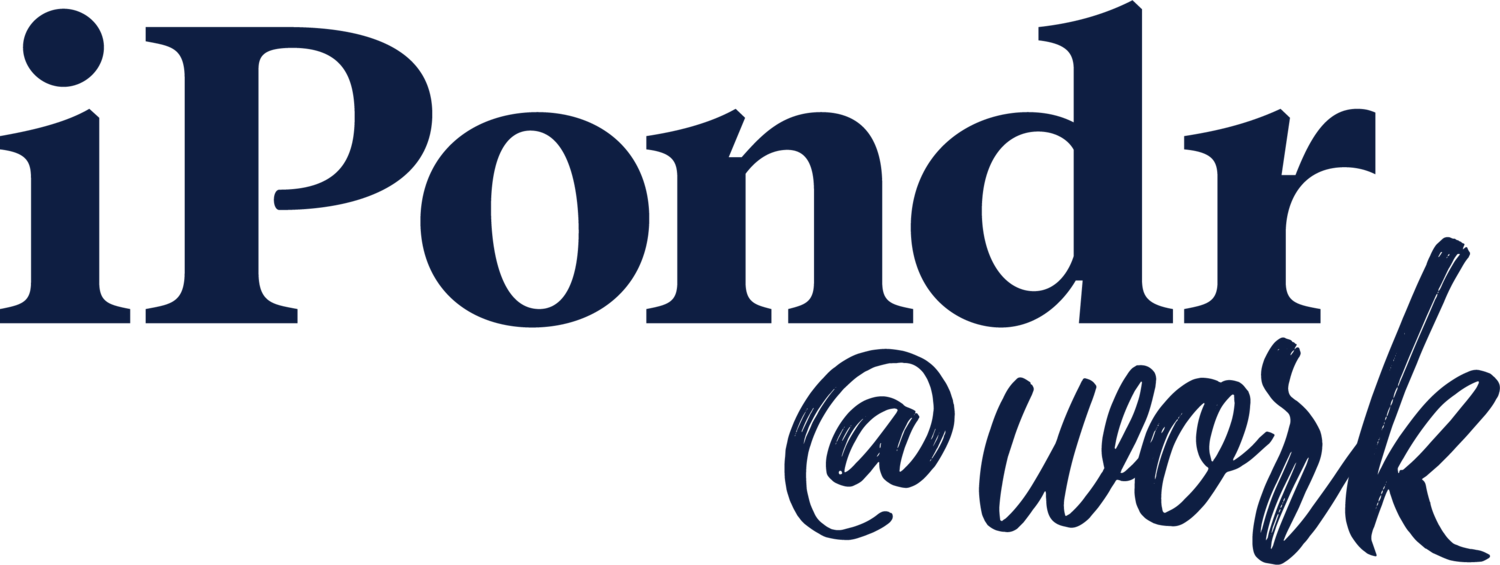The Future of Remote/Hybrid Work
The history of remote work
The pandemic ushered in a new era for work-life. Offices moved to the home, and communal workspaces were left empty. This transition was no small event, and many companies are grappling with the best way to move forward after so much time away from the office. In this blog we’ll explore the benefits of remote work, while also looking at the ways that iPondr@Work can help your team thrive.
In order to understand the characteristics of remote work, we first have to explain the concept of “work design”. Work design is defined as the “content and organization of work tasks, activities, relationships, and responsibilities.” Studies have shown that a well thought-out “work design” leads to positive changes for workers and their efficiency, resulting in job satisfaction, increased performance, and positive mental states. In regards to remote work, when the work design is well-constructed then employees are more likely to be satisfied with their own performance and accomplishments.
As employers begin to consider next steps post-pandemic, it is important to look at the benefits of remote work model. Understanding what works best for your team and implementing iPondr@Work discussion guides will help you foster workplace empathy, and improve your company culture in the process.
Challenges of remote work
While there are many benefits to remote work, assessing potential challenges is also important when choosing the best course of action for your team. A recent study outlined some of these challenges, such as procrastination, ineffective communication, work-home interference, and loneliness. Following the steps below can ensure a positive remote work experience for all members and combat the potential challenges.
Next steps for team leaders
Implementing the following features can improve your remote work experience and reduce burnout and isolation. These features are: social support, job autonomy, monitoring, and workload. By surveying these features, leaders can create the best possible experience for all team members.
1. Job Autonomy
Employers should offer flexibility to employees in determining when and how to complete their responsibilities. As long as deadlines are appropriately met, and meetings are attended, allowing employees the opportunity to do work when best suits their schedules will improve their productivity and their job satisfaction.
Allowing employees to dictate parts of their schedule will offer additional time for rest, exercise, and recuperation, avoiding burnout in the long run. This also allows family time to take place during the work day, which benefits the social-support system of a remote workplace.
2. Monitoring
Monitoring was also identified as a feature that can improve productivity and time-management for some employees. Monitoring can take many forms, such as morning check-ins, daily reports or keeping track of hours via an app. This additional monitoring can provide “a sense of ritual” and improve focus throughout the day.
3. Social Support
During a time of isolation for many, social support can be crucial in maintaining a positive mindset. Social support is cited as a top contributing factor to a positive remote work experience. Social support does not require in-person gatherings to be successful. Offering virtual events and opportunities for employees to connect digitally can combat feelings of loneliness and isolation and increase feelings of belonging. Social support can also serve as a combatant to procrastination, as procrastination is often a tool used to counteract stress, which can be alleviated by social interactions. Team leaders should consider implementing monthly social gatherings over a digital platform, and offering other online options in between.
4. Workload
Monitoring workload levels during remote work is of the utmost importance in maintaining an appropriate work-life balance. Remote work can often lead to difficulties in stepping away from work and career responsibilities. Team leaders can combat this burnout by communicating clear expectations, and checking in regularly about the level of responsibility at any given time.
iPondr@Work
iPondr@Work can help you promote empathy and social support in the workplace. At iPondr we believe that the answer to a productive, positive work experience lies in empathy-building. Understanding the needs of your team can help you create a more positive work environment overall. Having your team connect over iPondr’s stories can help foster understanding and team-building, while also providing a space for social support throughout the day. iPondr@Work is designed to fit seamlessly into flexible, autonomous schedules. Our empathy-building activities can be done at any time and are designed to take only 10 minutes a week. Finding commonality over these topics can also provide opportunities for connection and conversation amongst employees tuning in from their homes.
Additional benefits to remote work
As our world changes, it is crucial for team leaders to keep pace with the needs of their workers. In a recent survey, 89% of participants wanted to normalize flexible working.
In an environment where flexibility is a high priority, remote working can be the key to fulfilling this need. Remote working can also ensure that teams are made up of the most qualified individuals, regardless of where they live across the country, or even across the globe. Hearing from employees firsthand about the benefits of remote work is the best indicator of its success.
In a survey from 2020, employees cited the following as reasons for why remote work was improving their lives:
Time saved without a commute
Reduction of non-essential meetings
Less distractions in the office
Increased productivity
Greater autonomy
Understanding the reasons that employees prefer a remote model can improve empathy across your organization. Ultimately, prioritizing the needs of your team is the best method in improving productivity and work-satisfaction. Promoting iPondr’s message of empathy and supporting employees from home will benefit your company’s culture and success, now and in the future.
This article is brought to you by iPondr@Work. Be sure to check out our website for more information on diversity in the workplace.



